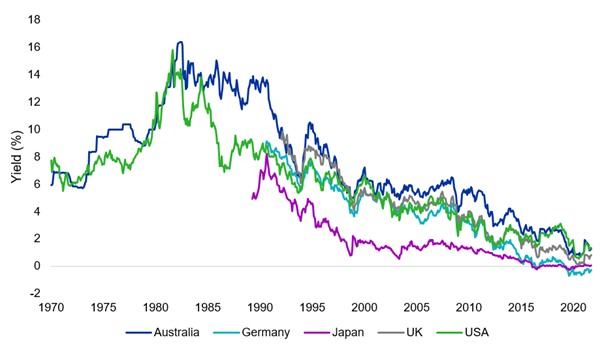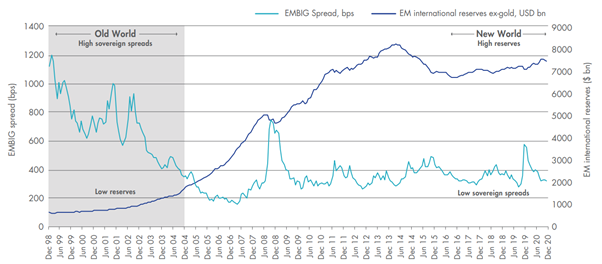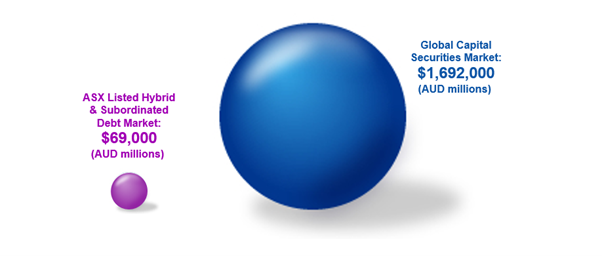Exchange Traded Funds step in as usual income sources prove costly
As if it was not hard enough for income-seeking investors, global interest rates were plumbing all-time lows at the start of 2020, even before the pandemic hit.
Returns from usually low-risk investments have been lacklustre ever since the global financial crisis.
On top of staying physically safe, investors have been confronted with a new income scenario.
Aggressive central bank intervention in fixed income markets to help stimulate economic growth has all but ended any hope of earning even a modest yield from risk-free assets.
To complicate matters, the nature of the disruption and the response adopted by policymakers raises the chances of an inflationary outbreak, which could expose risk-free bonds as anything but.
In this wire, I explain the role of exchange-traded funds in today's challenging income environment, in which steady income can only come at higher risk.
I also discuss two recent tax changes that can affect returns from managed funds.
Even sitting still has dangers
Investors face an unavoidable dilemma: play it safe and earn next to zero or take on more risk in the hope of a reasonable income.
The quest for investors who refuse to accept no income is to take intelligent risk by finding pockets of opportunity in the financial markets.
Exchange-traded funds (ETFs) offer income-seeking investors several solutions they may otherwise not be able to access.
Many of these can offer relatively attractive income opportunities, for commensurate risk.
The chart below shows the performance of government bond yields in the past decade. It is easy to see why investors are flocking to other asset classes, such as ETFs, as an income solution.
How government 10-year bond yields have fallen

Source: Bloomberg

Flexible income with just one trade
ETFs have many advantages. A big one is liquidity: investors can buy and sell fund units on the Australian Stock Exchange at any time in the trading day.
As long as you have an account with a broker, you can buy and sell units on the ASX without filling in paperwork or locking your money away for fixed periods.
These funds can also diversify a portfolio, as a single ETF typically holds many more securities, obtained at lower cost, than is possible for an individual investor.
ETFs also allow you to access income from different asset classes, depending on your risk profile. Many give investors access to income-yielding investments that were not previously available.
The table below shows some of the income choices investors have. Many of these asset classes are not readily available to Australians. ETFs are democratising the investment landscape, giving investors choices they did not have before.
Asset class |
Portfolio application |
Additional insights |
|
Floating rate notes (FRNs) |
The coupon payments of FRNs will increase if market interest rates rise, or fall if interest rates go down. |
|
|
Australian fixed income |
Corporate bonds generally offer a higher yield for a higher risk than term deposits and government bonds. |
|
|
Australian subordinated debt |
This offers higher yields than cash, term deposits and traditional bonds for slightly elevated risk. |
|
|
Emerging market bonds |
These generally pay higher interest than developed markets bonds, allowing investors to broaden their income horizon with elevated risk. |
|
|
Global capital securities |
Australian investors can use these to diversify portfolios beyond local banks that dominate corporate bonds, equity income and hybrid allocations. |
|
|
Infrastructure |
Income from infrastructure assets is typically more stable than equities and higher than traditional defensive assets such as bonds. |
|
|
Australian real estate investment trusts (A-REITs) |
Stable rental income that is a potential hedge against increases in line with the Consumer Price Index. |
|
|
Global REITs |
Diversify beyond A-REITS, which account for just 3% of the world’s REIT opportunity. |
|
|
Equity income |
Income in this category comes from quality Australian companies. |
Source: VanEck
Casting the net overseas
Globally, higher income is available in two well-established but less crowded areas of the bond market – emerging-market bonds and global capital securities. The universe of each is large.
The total size of the emerging-bond market is estimated at US$26 trillion as borrowers from populous nations with large economies source financing. The market for capital securities, issued by banks to shore out their equity positions to withstand losses, stands at around US$1.5 trillion.
International and local investors have long memories and often overlook these two markets.
Although emerging-market economies have had their crises in the past, nations and institutions have taken significant steps to reduce risk.
Emerging markets are not a monolith – some are in a better financial position than developed markets. This is not reflected in the risk premiums the market commands, however, as the chart below indicates.
Emerging-market bonds have changed

Source: Bloomberg. Data as of April 2021. EMBIG spread is the difference between emerging-market hard-currency sovereign bonds and US treasuries, and is captured by the JP Morgan Emerging Bond Index Global Sovereign Spread.
For investors who know how to navigate these markets, rewards still exist in a world devoid of yield. This is where active management in emerging-market bonds can come to the fore.
Active managers are able to avoid those emerging economies with weaker fundamentals and prefer those that are better managed and therefore better insulated from shocks, such as a COVID-19 event that restricts international trade.
The VanEck Emerging Income Opportunities Active ETF (Managed Fund) (ASX: EBND) is an actively managed ETF that has successfully navigated the post-COVID world. It offers a targeted yield of 5% per annum, paid monthly.
(In determining each month’s dividend, VanEck targets an annual dividend yield for the fund of 5% of the capital invested at the beginning of the year. Dividend yields may differ for individual investors. We may amend this target from time to time.)
The other global category offering higher income – global capital securities – has changed since the financial crisis. The banking system has had to improve its fundamentals through higher capital ratios and balance sheet de-risking.
Global capital securities are difficult to access as they are only available over the counter to institutional clients. But these opportunities should not be overlooked.
VanEck, together with leading credit and fixed interest specialists Bentham Asset Management, have created a global capital securities opportunity on the ASX: the VanEck Bentham Global Capital Securities Active ETF (Managed Fund) (ASX: GCAP).
The global market for these securities is many times larger than Australia's, as the diagram below shows.
The global bank and insurance capital market is much larger than Australia's

Source: Bloomberg; Bentham, 31 July 2021
Shopping locally
For investors seeking income earned closer to home, two sources derived from Australian companies present compelling opportunities with different levels of risk.
The first domestic source of income, tier 2 subordinated bonds, are part of the buffer Australian banks are required to have to absorb losses in the event of financial distress.
This capital is used to protect depositors and policyholders so they can feel confident their money is safe.
In July 2019, the Australian Prudential Regulation Authority finalised its "total loss-absorbing capacity" requirements for the major banks to reduce the prospect of a taxpayer-funded bail-out.
In an Australian first, the VanEck Australian Subordinated Debt ETF (SUBD) enables investors to hold a portfolio of investment-grade subordinated debt and receive attractive yields without having to lock away money for any fixed term.
The second domestic source of income is dividends paid by Australian-listed companies, but never forget that investors who seek income from equities take on significantly more risk.
That risk can be mitigated by looking for companies that produce reliable cash flows due to strong competitive positions and maintain low, manageable levels of debt.
The VanEck Morningstar Australian Moat Income ETF (DVDY) gives investors exposure to a diversified portfolio of quality dividend-paying ASX-listed companies selected by Morningstar.
Wrapping your brain around tax
ETFs pay income to investors in the same way as unlisted funds. Choose your fund manager carefully, as you would with unlisted funds. How they treat income is an important consideration.
Two recent tax changes can have a significant impact on the level of income you receive from your managed funds.
The first change is known as AMIT, which stands for Attribution Managed Investment Trust rules. The second is ToFA, or Taxation of Financial Arrangements.
These tax changes are important because some investors recently received an abnormally high 30 June distribution, while other investors, in funds they rely on for income, did not receive a distribution at all.
Some fund managers found it was simply too expensive or too hard to implement these tax changes. But VanEck has adopted them to smooth out fund distributions and maximise income reliability.
In an environment of unprecedented large-scale central bank intervention that has suppressed interest rates, investors have little choice but to take on additional risk.
VanEck believes savvy investors can still earn an income that rewards them for the risk they’re willing to take and ETFs provide that opportunity.

Investing with VanEck
VanEck is one of the world’s leading ETF
providers. Unlock opportunities with VanEck's investment strategies that are
designed to give you unequalled access to markets, sectors and intelligent
investment ideas. Click here to find out more.
5 topics
1 stock mentioned
1 fund mentioned


